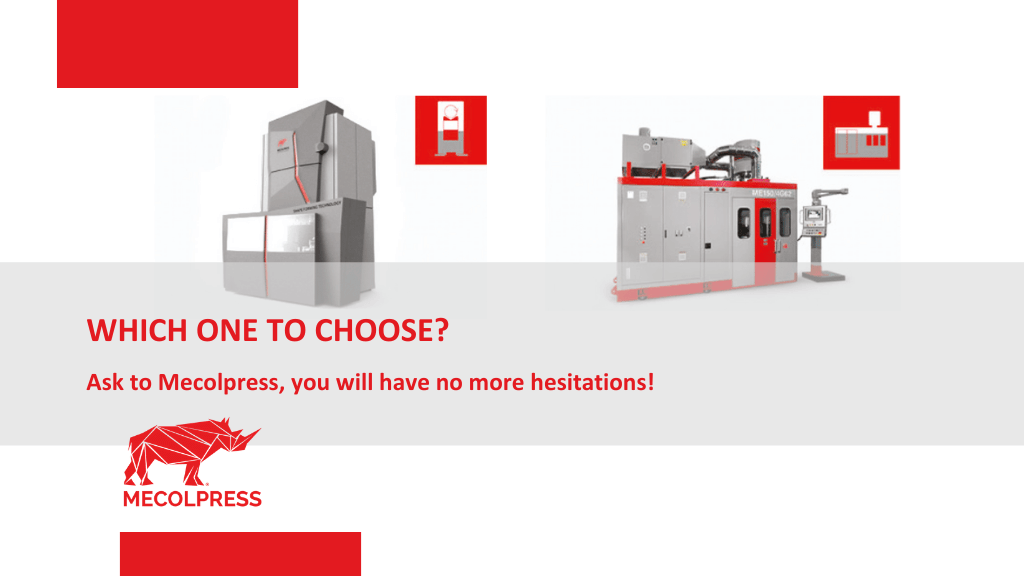
Are you doubtful between mechanical press and hydraulic press?
Are you doubtful about the press to choose? Mechanical press or hydraulic press?
Ask to Mecolpress, you will have no more hesitations!
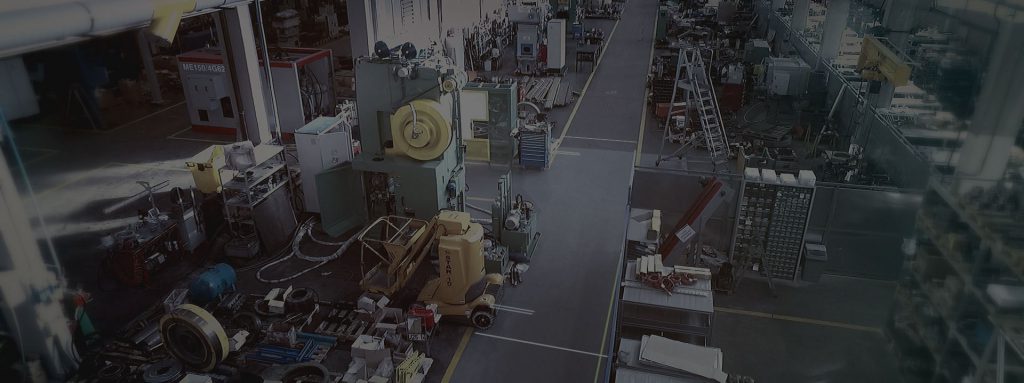
You have just got a new commission and you need a new press for hot forging. Are you sure that you can identify the press that best suits your needs?
Typical request
It often happens that a Customer, or potential one, comes to us with the part he desires to forge. Usually it’s about complex situations, very far from standard applications. That’s exactly why the Customer asks for our help and support.
If the Customer is not a newcomer in the forging world, he usually arrives in Mecolpress with clear and straight idea about the type of press he wants. But very often it happens that he will change his view after having the possibility to get in contact with our forging know-how!
You ask for a mechanical press but you need an hydraulic one!
For example, some weeks ago two different customers came to visit us bringing some sampling to be forged. They were sure to ask a quotation for a mechanical press, they realized instead that the right machine for their situation was a hydraulic one!
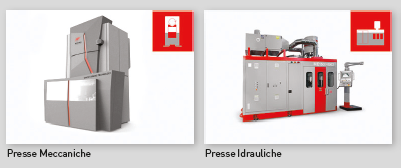
Both our customers had the chance to test new dies, only 4 hours were needed for the preparation and installation of the dies and to run some tests. Even though the furnace was not the best one for their kind of production, because it’s a furnace that Mecolpress uses for testing, the machine gave a flash-free part in only 4 hours, with a saving of about 30% of material and with a quality definitely superior than the one they could achieve using a mechanical press.
Moreover, it is important to take into consideration the limits of the mechanical press:
- Since the part is not balanced, the mechanical press should use all its possible force to forge it.
- Working in this way the risk to run into damages or machine breakdown becomes greater.
On the contrary, The ME hydraulic press can forge the part better. The forged parts which required more force used however less than 200 tons on a punch, therefore it consists of a forces distribution that is totally different compared to the traditional mechanical press.
Often the customer is skeptical towards the hydraulic press, but just because he is not familiar with it!
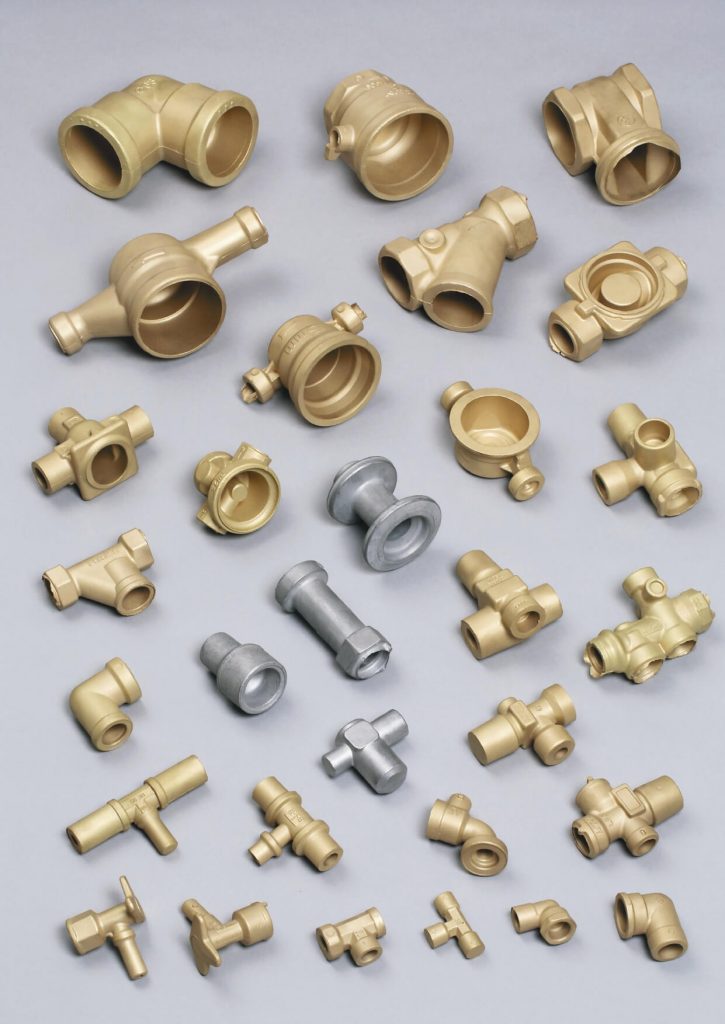
Find out more about the hydraulic presses
The hydraulic presses patented by Mecolpress are suitable for the hot forging of standard parts or special parts in brass and aluminum. The dies closure force is higher than the one of the traditional mechanical presses and the independent and controlled movements of the ram and of the extruders allow to hot forge also complex parts without flash.
These are oleodynamic presses provided with coring tools combinable till to a maximum of 5 punches (4 horizontal and one vertical) suitable for the hot forging of brass, aluminum, copper and other materials.
Compared to the traditional mechanical presses these presses have different advantages, including:
- Reduced vibrations and noises.
- No foundations are required.
- Higher flexibility: there are no mechanical connections between tooling and ram; this implicates that you can decide speed, force, position and movement sequence for each punch independently. The result is the possibility to decide how to let the material flow, this helps the part production with a better quality level.
- Ease of tooling: easy access to the forging area and automatic adjustment of punches strokes from the panel that cancels the mechanical adjustment on the spines (for example insertion of spacer).
- The press is easy and intuitive to be used even without a great experience in the forging field. Together with the machine a lifelong service via teleservice and phone assistance is provided.
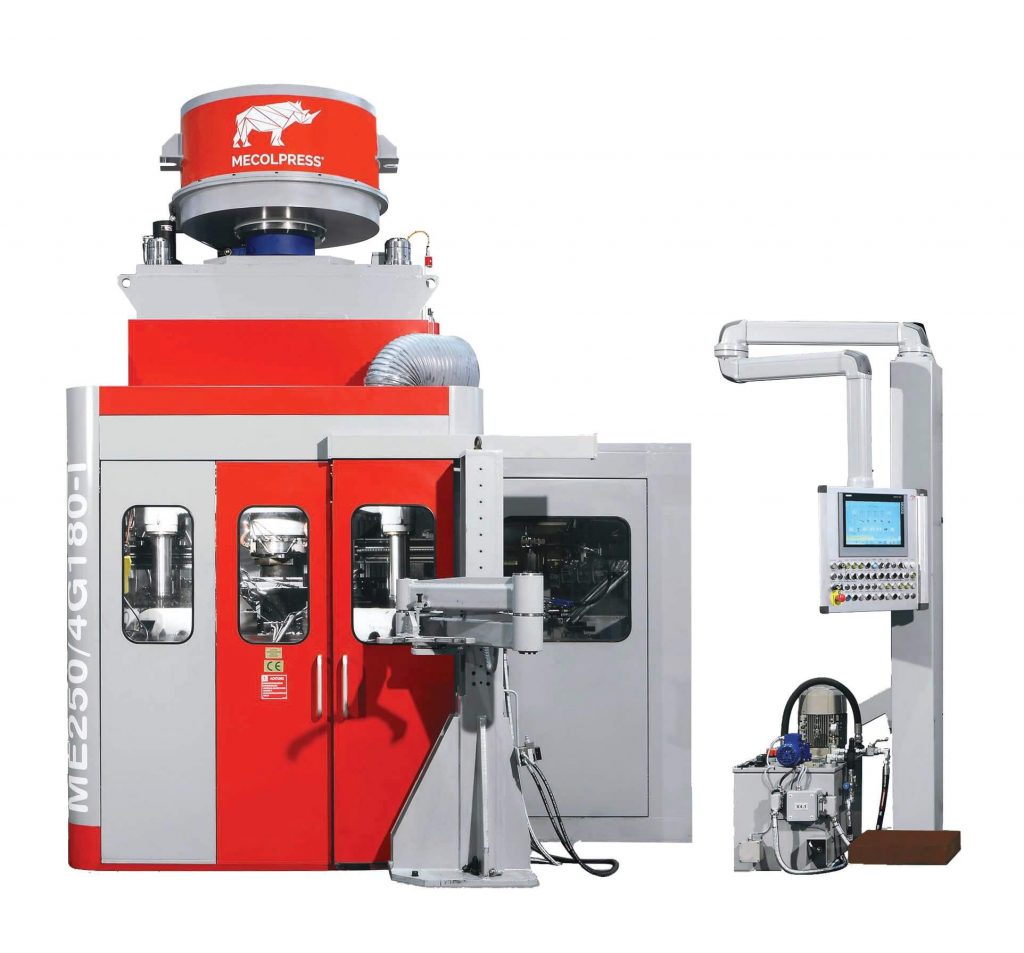
Some practical examples about the choice for a hydraulic press.
- Hydraulic press ME150: this is a quite small machine and often we suggest it to who has no experience in the hot forging field.
- Hydraulic press ME 250: let’s get serious!
Example: are you undecided if you want to buy a 400t mechanical press or a ME250 hydraulic press?
If you have small and easily to force parts to be produced in huge quantities and in series maybe the choice of a mechanical press is the most suitable, but if you have a part that is lightly more complicated, probably you need an hydraulic one. In this case, we are sure that a test here in Mecolpress will remove any doubt!
- Hydraulic press ME from 450tons onwards: This press is more efficient, more cost-effective, it allows to save material, to increase the productivity, it is more convenient, more silent, no foundation pit is required and despite of what our competitors affirm, the energy consumption is not high. In fact, this consideration comes from the fact that just the installed power is taken into consideration.
Did you carry out a forging simulation and forging tests?

In order to choose the right press it is surely helpful to carry out a forging simulation, our technical office can support the customer during the process for choosing the machine with a software analysis of material flow, in order to carry out a sort of “virtual pre-acceptance” of the plant.
Once that the forging simulation is successfully over, then the next step is a real test in our factory. Indeed we have available machines devoted for the forging tests, this is a very important aspect for the customer that often gives him the possibility to invest in a more aware and motivated way. Touching the forged part doesn’t leave no room for doubt!
Being able to satisfy and fully understand the customer needs, to demonstrate and propose our most suitable solutions with concrete tests thanks to the machines and toolings we have available in Mecolpress for the forging tests is for us matter of pride.

Hot forging of the brass without flash, a success case
Brass hot forging and its application sectors
The hot forged brass pieces are used in many sectors, including, for example, clothing and constructions industry. The belt buckles, the zippers and door handles are all examples of parts produced with this material and obtained through hot forging presses.
Among the different application sectors, however, the one that sticks out mainly is the fluids control and hose fittings sector.
- Taps and fittings pieces,
- Valves for LPG tank and high-pressure gas,
- Ball valves for water, gas and oil,
- Watermeter bodies,
- Junctions for both the normal and floor heating, these are all brass pieces.
This type of product is currently affected on the market by a very strong competition of the Countries in which the manpower is cheaper and where probably in some cases a brass alloy is used that responds mainly to the local necessity and to the temporary availability, rather than to satisfy the international quality standard. To produce this kind of pieces in Europe, saving competitivity on the market represents therefore a challenge for many companies.
Hot forging without flash four brass parts at the same time
Speaking with a customer of ours who has the productive headquarter in Europe and who produces brass pieces, we could experience his real difficulty to remain on the market. From here comes the idea to find a solution that could allow him to increase the productivity and to reduce considerably the wasting material for sparing on the costs.
Our staff in collaboration with the technical office of the customer has identified then two different dies: one for the production of a hose junction connection and another for a curve of 90°. These new dies have been developed to take advantage of the potentiality of our hydraulic presses of ME serie of forging without flash and the result was to forge 4 parts at the same time.
In order to obtain this result, it is necessary to provide one of our standard hydraulic presses, such as the ME250/4G100, with some optional accessories (including also the billets loading system), that are conceptually simple but extremely well-performing.

This system is different due to its strongly innovative characteristic, since at the moment just the Mecolpress presses can provide this result (forging 4 pieces at the same time without flash) that surely brought great advantages also to our customer in terms of marginality on the product cost.
Through this specific press for the brass forging, it is possible to produce 4.500 parts at hour on average without flash.

This case study shows how it is possible to find solutions in the concrete and proactive collaboration with the customer that satisfy in the best way the specific productive necessities of that company and for its own specific interest.
